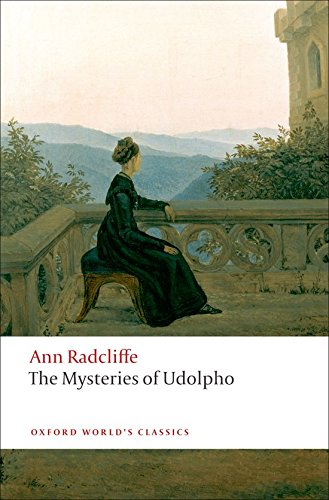
The first time I heard of The Mysteries of Udolpho by Ann Radcliffe was in Jane Austen’s Northanger Abbey. (I think that’s the case for most people.) In Northanger, Catherine Morland’s fondness for Gothic novels and active imagination results in a disastrous misinterpretation, and Mysteries of Udolpho is one of those novels. Clearly, not very high praise when it comes to practical real life.
There is much villainy afoot …
… This led to the question, whether the spirit, after it has quitted the body, is ever permitted to revisit the earth; and if it is, whether it was possible for spirits to become visible to the sense …
In Mysteries of Udolpho, Emily St. Aubere’s father similarly admonishes her to not give in to impractical sentimentality. But then he dies and leaves her orphaned in the hands of his rather shallow sister, Madame Cheron. Madame Cheron and Emily do not get along, to put it mildly.
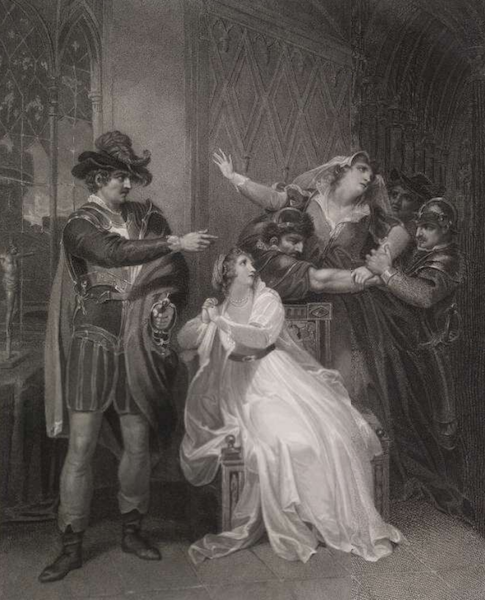
That situation worsens when Madame Cheron ends up marrying Signor Montoni, a stylish Italian whom everyone seems to admire but no one seems to like. Montoni is the quintessential Gothic villain who, gambles, drinks, cheats, broods and schemes. (I expect he had a mustache too, which he twirled a lot as he brooded.)
Poor Emily has a terrible time of it all. She learns her father was hiding a terrible secret from his salad days. Her engagement with young Valancourt is broken off and her hand promised to another without her consent. Her home and father’s impoverished estates in France are rented away, and Montoni packs them off (eventually) to the desolate castle of Udolpho.
Nestled in the Apennine mountains of Italy, Udolpho’s grandeur has faded with time and neglect. It once belonged to Montoni’s relative, Signora Laurentini, who died in mysterious circumstances. There are rumors that Montoni killed her off out of jealousy and to grab her estates. Certainly, nothing can be put past Montoni, who it turns out is now leading a band of mercenaries, the Condottieri.
Gothic Suspense at its finest (albeit quite long) ….
We are talking about Italy in 1594, torn by civil war among feuding princely states. France and Italy too are not at peace with each other. Emily, destitute, friendless, pining for Valancourt, mourning for her father, is (often) on the road with such brigands. There is very real peril in those journeys.
If I could describe this book in one word, it would be “gripping”. The spookiness is very well-done. Very “Gothic”. There’s a sense of dread at every page and death and illness dog our protagonist’s steps at every turn. The true strength of this book is the suspense of uncertainty — are there ghosts or are there not? And how will Emily survive is almost as nail-biting as whether Emily will survive.

Hmm. About those characters …
On the characters themselves, they are mostly two-dimensional given to one-track emotions: weeping, plundering, plotting, accusing, gossiping or adulating. This is somewhat redeemed by the interesting reasons given by the author for their mostly unreasonable behavior:
To these men, [his] reserved and thoughtful manners were a kind of tacit censure on their own, for which they rallied him when present, and plotted against him when absent; they gloried in the thought of reducing him to their own level …
She disliked them, because they were the friends of her husband; hated them, because she believed they had contributed to detain him abroad till so late an hour …; and envied them, since, conscious of her own want of influence, she was convinced, that he preferred their society to her own.

I have to say I found Valancourt particularly fatuous, to the point where I actually burst out laughing. Him and his violent emotions, that go on and off like a pendulum. I love you/ You don’t love me/ I am miserable/ Oh, but you still pity me at least/ You actually do love me/ But I am so unworthy of you/ But I love you…
But also: Groan. Someone should give him an award for Most Melodramatic Declarations.
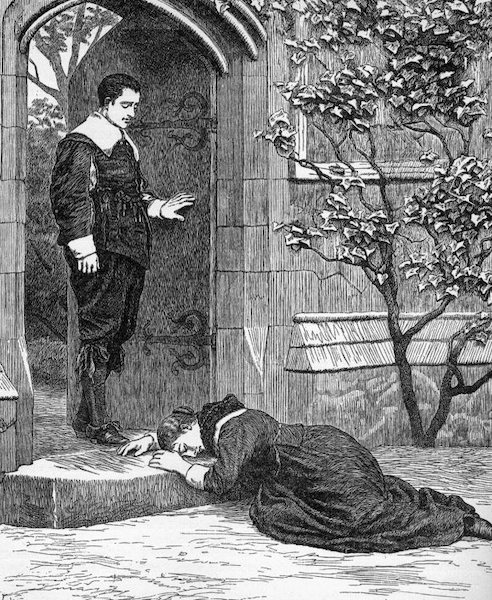
Emily too is mostly milquetoast. She gets all tongue-tied when overwrought, writes really long sonnets, always neglects her money and property papers, frequently forgets about the dog, and faints often. Still, I can forgive her, because she has led a very sheltered life but still manages to show pluck when needed. I think the real fault lies with her father, who kept her shut away, never told her important details, and made her a really bad will. If ever there was a classic on the importance of giving women financial independence, Mysteries of Udolpho would be it.
Final Notes
Overall, a wonderful experience from start to finish. There are parts that drag but don’t let that stop you from giving Mysteries of Udolpho ia shot. Especially since Halloween and the Readers Imbibing Peril R.I.P. XV Challenge 2020 are both around the corner.
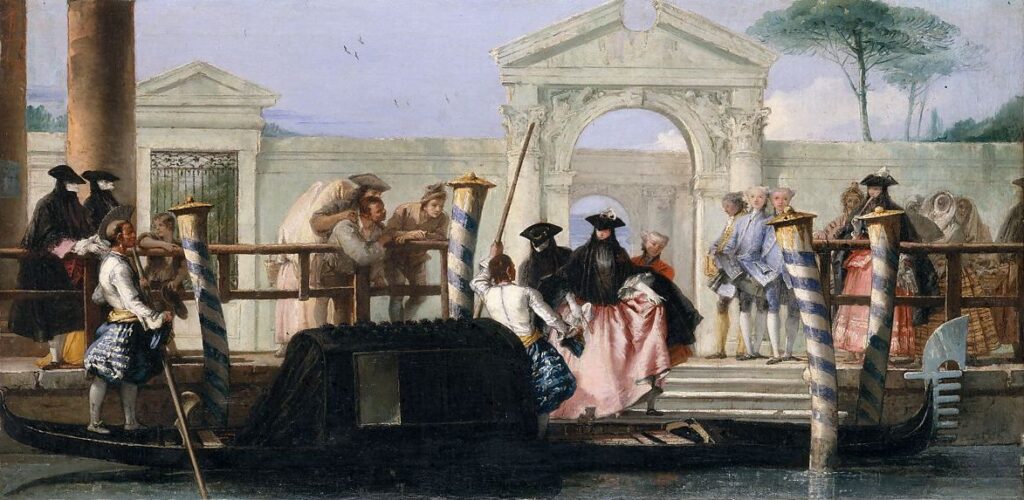
Why has no one yet made a movie or tele-show out of this book? The scenes will require atmospheric work and some great scenes of Pyrenees and Apennine mountains and countrysides and Venice carnivals, and there aren’t many characters — don’t think cost would be such an issue. Or imagine if Tim Burton could lay his marvelous hands on the project!
Notes and Links
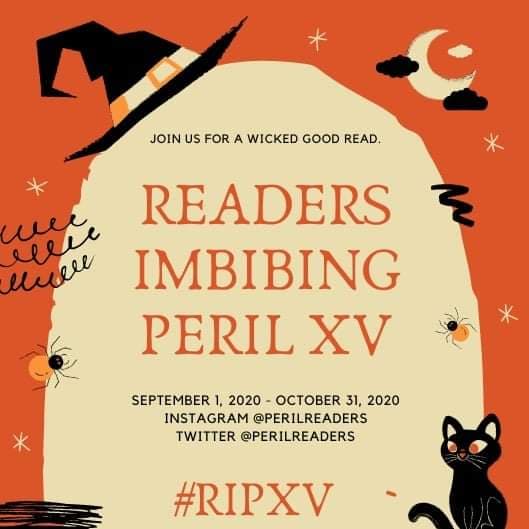
- Public domain ebook at Gutenberg.
- In the movie, Becoming Jane, we learnt that Austen was an admirer of Ann Radcliffe’s work and had met her as well.
- I found a most excellent roadmap of all locales mentioned in Mysteries of Udolpho. Worth planning a tour.
- Howling Frog recently did an in-depth readalong for Mysteries of Udolpho.
- Gothic Ghosts: Representation of Feminine Passion in Ann Radcliffe’s The Mysteries of Udolpho by Michelle Landauer at University of Melbourne. Spoiler alert for this one.
- Did you know? Towards the later half of her life, Radcliffe is rumoured to have become insane as a result of her writing and retreated from public life.
- Public doman audiobook available at Librivox and also a Podcast at Loyal Books.
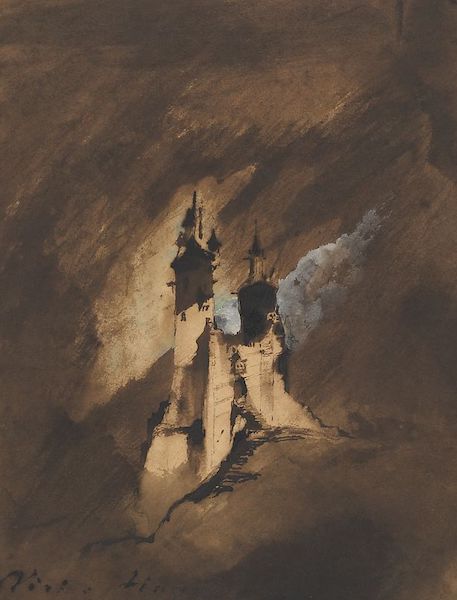

4 replies on “The Mysteries of Udolpho by Ann Radcliffe: Book Review”
This sounds really good. I love Gothic novels. I’ve not heard of it before either. Isn’t this a fun time of the year? I love R.I.P.
Yes, RIP is so much fun. Thanks for helping to host it — I owe Udolpho to RIP 2020. 🙂
I read this about 10 years ago as part of an Austen Northanger Abbey readfest, and was surprised by how much I liked it. Great review of a thoroughly fun novel.
It was fun, especially since I hadn’t expected it to be. I went into it thinking it would be melodramatic and just about a long road trip… and yet it turned out to be a riddle with a riddle.